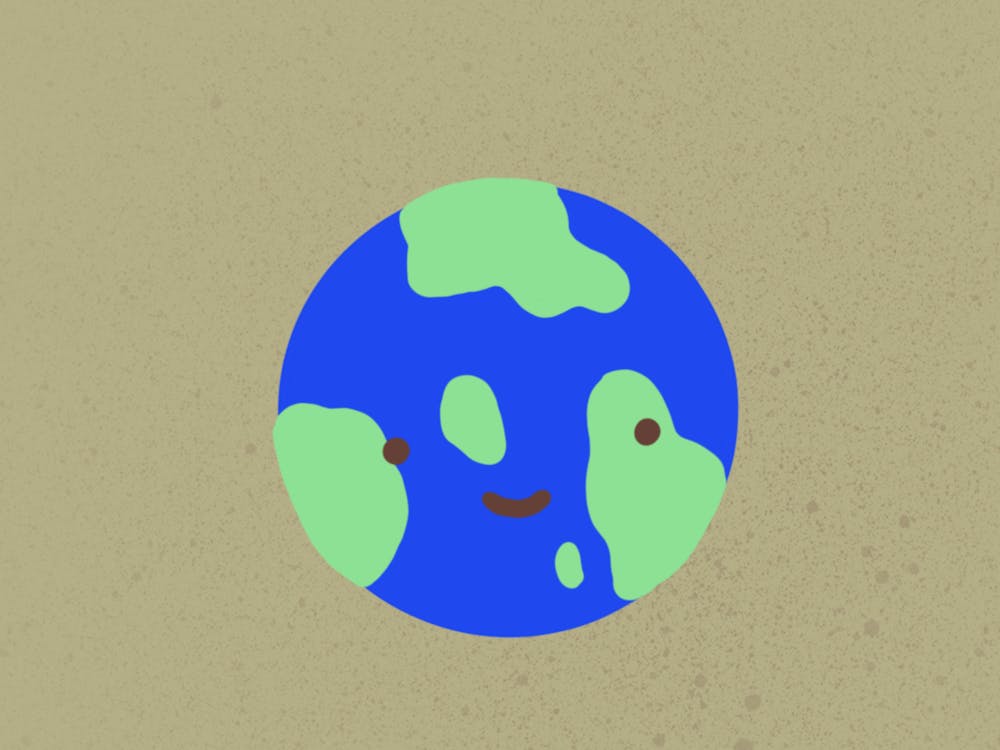COVID–19 has contextualized a society enduring what feels like a hopeless new era— one of a pandemic, an economic crisis, and civil unrest. For some, it has also opened a time for tremendous and much–needed introspection. The aftermath and cataclysmic effects of this virus have forced people to reexamine and reassess our world—its industries, systems, norms—and the way we have been living.
It feels as though our society may have entered a time of newfound awareness and empathy. It seems like there is an inspiring and long overdue increase in the dialogue surrounding social justice and human interaction, as well as a reassessment of how we can better treat one another.
But in this moment of hypersensitivity and growth, there is another question we should be asking ourselves: how can we better treat our planet?
This existential question is one that is often overlooked and neglected. As mankind struggles to fight COVID–19, there is another sickness that threatens our existence— the disease of our planet.
“I think the reason people perhaps do not care enough about the environment is that it is fundamentally an abstract concept as it is communicated in the media today,” says Richard Ling (E ‘20). “We make decisions based on what will affect us most as far as we can see. But climate change is not something that you can immediately sense or see.”
During his time at Penn, Richard was a passionate member of Penn’s environmental activism scene as a student in Penn’s energy research program, VIPER. He was also an Eco Rep for several years, spearheading innovative projects to help advance Penn’s sustainability goal.
Richard understands that caring about climate change is difficult for many, not only because it feels so intangible and abstract, but because it feels like a luxury. Richard recognizes that it’s hard for people to care about the environment when they have other things to worry about, but urges that “if you do have the capacity to care about sustainability, that is a privilege and you should do so.”
Vyshnavi Kosigi (C ‘22), co–chair of the Student Sustainability Association at Penn (SSAP)—Penn’s undergraduate umbrella group for sustainability—agrees with Richard that caring about the environment may seem abstract and far off. However, she emphasizes that in reality, our decaying environment is detrimental now in more ways than we may realize.
“Right now, climate change is part of systemic racism. [It’s] part of systemic wealth and inequality. It’s part of inequity in health. It’s part of inequity in education,” she says. “Climate exacerbates all of these issues to an unknown magnitude. And if our generation is really committed to Black liberation, to redistributing wealth, to making education effective and a key to personal growth, we have to be talking about climate.”
So how can we—as Penn students and active members of society—be more environmentally friendly and conscious? How can we make a change?
Both Richard and Vyshnavi note that many are discouraged to make changes because of an intimidating misconception surrounding environmentalism. People think that it’s an all or nothing movement—you have to be this hardcore enthusiast, hippie, and vegan or you can’t be a part of it. But the last thing the environmentalist community wants is for anyone to feel alienated by its passionate members or by the overwhelming magnitude of how much needs to be done.
“Any step in the right direction is a fantastic step forward,” Richard says. “You can take small, incremental steps towards environmental activism or living a more sustainable life without jeopardizing your current flow of life.”
In fact, Richard and Vyshnavi emphasize that one of the most fundamental steps to do better is actually pretty simple. It is something everyone can do: start by being more conscious and aware, specifically of what you’re consuming.
Is your food sustainably sourced and genetically modified organism (GMO) free? When you’re online shopping for a new dress or new backpack, is there a more sustainable option you can purchase? When you’re not using your phone charger, do you leave it plugged in, wastefully absorbing “phantom energy?” Can you use a reusable water bottle instead of a plastic one? How long and often do you do your laundry?
For Penn students specifically, there are many ways to get involved. It’s worth it to look into joining an SSAP club—like the Climate Reality Project or Fossil Free Penn. You could also take classes on sustainability and environmental studies, exploring topics like energy policy, renewable energy engineering, water quality, and earth sciences, to name a few (Penn even has a list).
Browse the Penn Sustainability website and read its various guides and posts—maybe even give them a follow on social media, and check out other activists and experts.
And if you’re looking to delve deeper into the movement, both Richard and Vyshnavi encourage you to look for opportunities outside of the Penn community, specifically in Philadelphia. You can get involved in policy making or join local organizations like the Sunrise Movement, which go beyond the Penn bubble.
Though small, individual changes are essential to progress, Vyshnavi warns that it is imperative that people also “[understand] that climate change exists because of huge historically ingrained systems." An example she notes is society’s dependence on and prioritization of the coal and oil industries, which are systems that she feels need to be “dismantled.”
“We have to realize that [the] coronavirus is a lesson for climate change, in a sense,” Richard says. “With climate change, it will be an even greater pandemic because climate change does not care about your age or where you live. It will affect us all no matter what. And it is simply an existential threat to our world. It’s not a matter of a virus inside the human body. It’s a disease inside our earth.”

